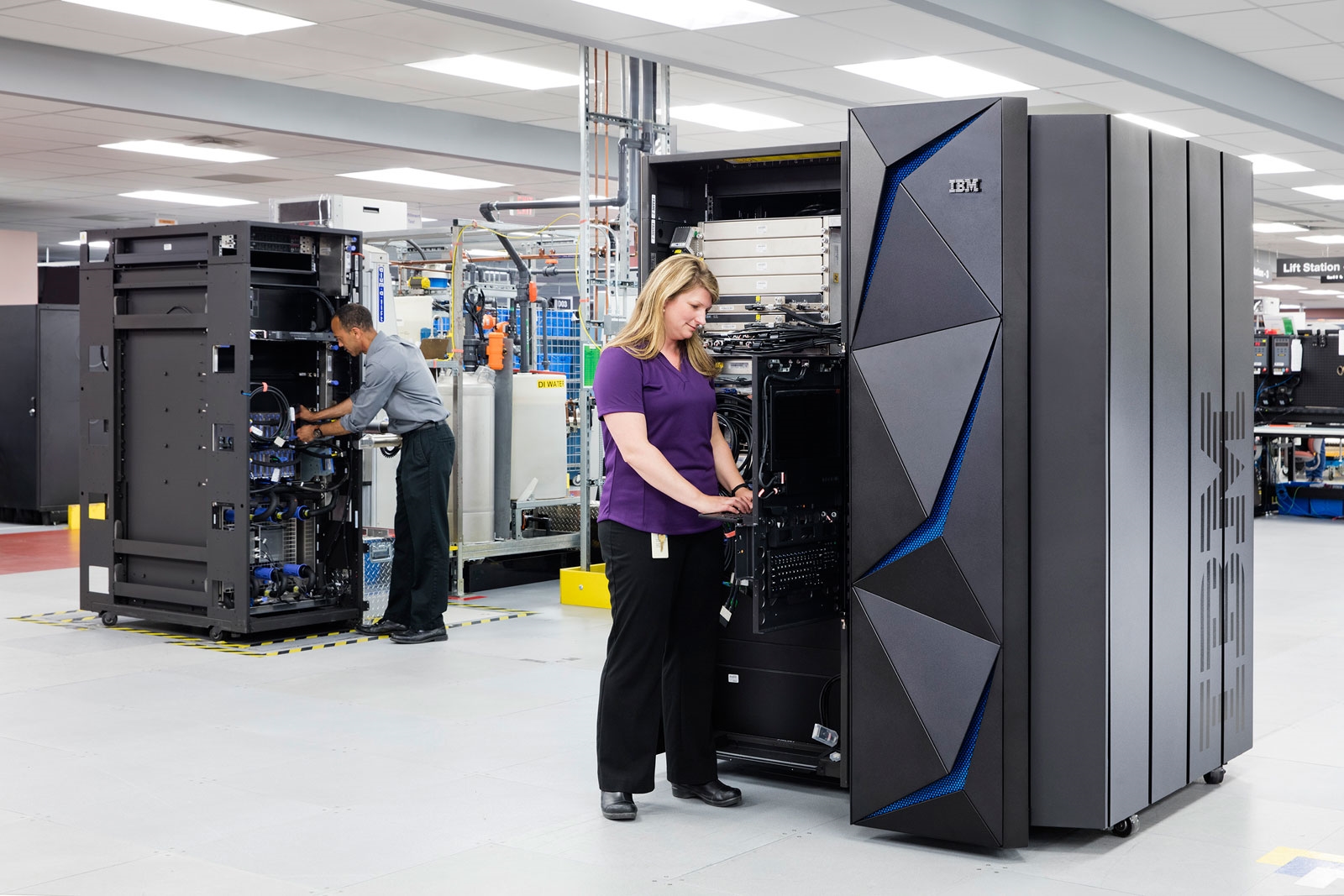Data breaches are bad enough by themselves, but they’re made worse when companies don’t bother to (or can’t) encrypt all their info. It’s tantamount to giving hackers the keys to the kingdom. But what to do? IBM thinks it has a simple solution: encrypt absolutely everything. Its latest Z mainframe system now has enough power to automatically encrypt all the data associated with an app or service, whether it’s in transit or sitting idle in a database. According to IBM, conventional systems based on x86 processors only encrypt “limited slices” of information, while the new Z has enough power (18 times more, in fact) to lock everything down as a matter of course.
The new platform can also “self-destruct” encryption keys the moment there’s any tampering, and quickly encrypts the programming interfaces that tie apps and services together. And the Z is faster overall, regardless of the task at hand: there’s three times the memory (a hefty 32TB), three times faster input/output and much lower lag when talking to a storage area network. The hardware should juggle many more transactions (like purchases at an online store) even as it boosts their overall security.
Naturally, there are catches to this utopian vision of internet security. While IBM plays an important role in online commerce (its transaction engine handles 87 percent of credit card payments), many companies would likely have to upgrade before you’d see the benefit. Any mass migration would probably take years, if it happens at all. And of course, IBM’s solution doesn’t stop hackers from taking data — it just prevents them from reading that data. There’s a chance, however slim, that the most determined perpetrators will find a way to decrypt content once they have it.
Nonetheless, this technology could be a big step forward if it lives up to IBM’s hype. If you can assume that your sensitive data is always encrypted, you won’t have to worry quite so much that thieves might go on a shopping spree with your credit card. This might also deter crooks if they know that they’re unlikely to hit the jackpot when they crack a company’s security.
(79)

